Our content is reader supported, which means when you buy from links you click on, we may earn a commission.
How Kerri Feazell Developed a Service, an In Person Course, and Online Training to Offer a Variety of Options for Business Owners Who Need a Brand Video
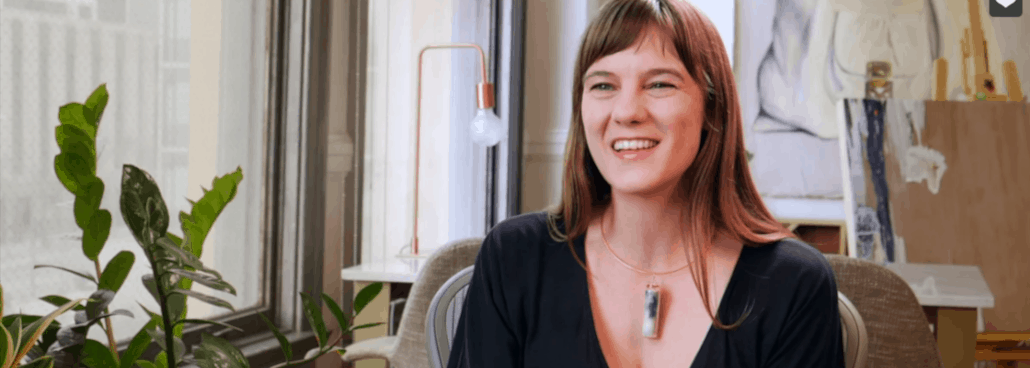
- Who: Kerri Feazell
- Website: authenticbrandvideo.com and concurrentproductions.com
- Course Topic: Creating a brand video
- Interesting Point: Runs a video production company
Who are you and what course have you created?
I’m the CEO of Concurrent Productions. My partner created the online course: “How to Make a Brand Video That Isn’t Boring” based on our experiences sharing our knowledge through in-person group sessions.
What market does your online course serve?
Our primary video production and storytelling services serve larger clients who need polished productions. This course is designed with the same storytelling principles in mind but for the small business owner, soloprenuer, author, founder pitching to investors, nonprofit leader, or freelancer. Really anyone who wants to grab their phone or webcam and promote themselves online through video.
It’s for people who know they can turn on their camera at any moment to capture their thoughts but aren’t sure what to say when they do that. (People like me!)
On our bigger budget full-service shoots, we have a professional interviewer help our clients know where to begin with their story while the cameras are on. In this DIY course, we give you some direction on how to tell your story most effectively if you aren’t sure where to start.
Instead of focusing on the technical aspects of high-quality production and lighting like other video courses, all our teaching is centered on how you can be most compelling, connected, and not boring.
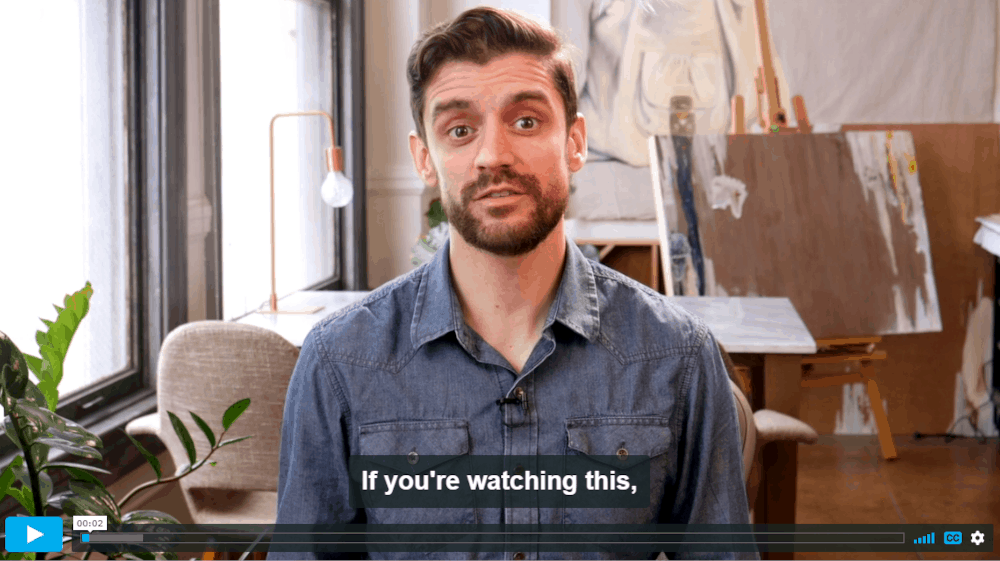
What’s the biggest benefit of taking your course?
The biggest benefit of taking this course is that when you turn on your camera, you will be confident that you are connecting with your audience on an emotional level because buying decisions are emotional. (Do I need what you have? Yes, that’s why I’m here. Do I like you? I’ll buy it.)
I’m an introvert and turning on a camera and just talking causes huge waves of anxiety in me. My biggest fear is that I will be boring, rambling, won’t make sense, won’t say it right. When you turn on a camera, you stare at a little black hole and hope someone on the other side will see you back and get some value from it. But how do you know?
This course helps you gain confidence that when you speak from an authentic place, there will be a human on the other side of that little black hole who connects with what you say, especially if you’re vulnerable in some way. Our goal in the course is to help you mitigate your self-consciousness, get you emotionally connected to other humans, and help you create content that has value and meaning.
Unless you’re a trained actor, memorizing a script or reading a teleprompter is really, really hard. Avoid that. We give you an alternative to the stiff, boring, uncomfortable camera presence of pretending to be good at something you’re not trained in which is acting. So you can focus on being good at what you are trained in: being yourself!
As a business result, the video you create if you follow our course method will give you the opportunity to introduce yourself to your audience. They will get an idea of your personality and passion and if you are the kind of person they want to do business with. It’s a virtual handshake.

How did you get into the market?
We wanted to serve a market that couldn’t afford our full-service production services (and frankly, didn’t need them). While we deliver beautiful videos with perfect sound, color, lighting, and framing to our full-service clients, the most important value we bring to all of our work is the ability to capture a meaningful story and connect our customers to an audience.
It doesn’t make sense for a bootstrapped founder or business owner, for example, to pay over ten thousand dollars to hire us and our crew. It does make sense to invest a little money in a course that will not only help them create a great video but will also help them pitch themselves and hone in on the way they introduce their story in other contexts.
Why did you decide to create an online course in the first place?
After invitations and a successful response to teaching our course in person at UCLA Extension, General Assembly, LA CleanTech Incubator, Nonprofit Learning Lab, The Exchange, Ironfire, and in the communities we developed ourselves through Meetup, we decided to take it online and offer it to a broader audience for greater accessibility at an affordable rate.
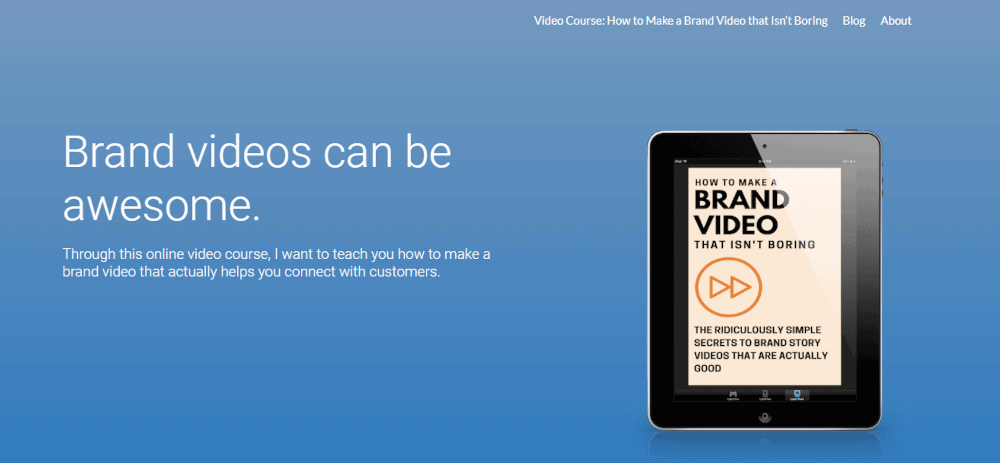
Did you have any moments of doubt before you created/launched it?
Oh my yes of course! But to back up a bit: the doubts we had before teaching our in-person courses were huge – imposter syndrome is real and terrifying. We changed the outline of the in-person course many times.
If so what made you turn it around and do it anyway?
As we did more and more of the live courses and solicited feedback, we realized that we were really providing valuable content to people who weren’t getting it otherwise.
That refining process gave us great confidence to proceed in creating an online course that truly brought value to our customers. -Kerri Feazell Click To TweetIf I were doing this again, I would do it similarly but with webinars instead of in-person courses to refine the content and get feedback and confidence from my audience.
What’s your online course like?
Our course is a live-action video and each segment includes examples and links to continue learning at your own pace beyond the instructor-led videos.
How long did it take you to create your course?
It depends on how you look at it … about a month or a decade of developing expertise? My partner trained in improv comedy for about five years before beginning to think about teaching a course and he spent about three years editing comedy content for Cracked.com. That really gave him the authority and experience to understand what makes something not boring.
Together, we spent about a year and a half doing in-person courses, teaching a dozen or so of them.
The course itself took a few weeks to write, working from the in-person outlines and examples we had already collected. And we filmed it all in one day. The editing took another week or so.
Like anything, change happens very slowly and then all at once when things come together.
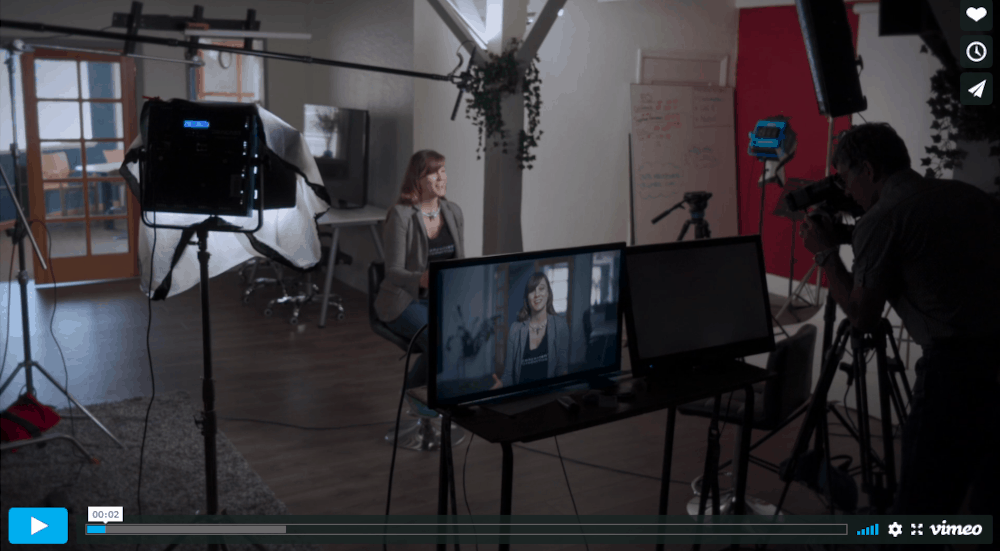
Tell us a little about the process of launching your course and getting your first sale(s).
We got our first customer by building a community on Meetup in LA (pre-pandemic). With interest growing, we decided to start another Meetup group in San Francisco around the same topic and said we would conduct our first in-person workshop there once we hit 100 members. However, we brought everything online instead.
We got our first customer through our authentic community of people interested in our topic! By offering a discount to existing members of that group, we motivated the sale. And, because we had built up a community we got feedback from our first client that actually led to consulting and production services for his brand – a bonus we didn’t expect.
Do you have a lead magnet?
We don’t currently have a lead magnet. We have experimented with a few things (a free PDF in various formats) and may introduce one in the future again with a few refinements. Always refining!
What’s the traffic strategy that works best for you?
So far, aside from Meetup, we have been gaining traffic organically by directing our own online communities to our course: LinkedIn and a Slack channel community.
We’ve had a little luck driving traffic through partnerships – a colleague who included us in his newsletter resulted in some sales. We’ve dabbled with Facebook ads but have not yet had results or invested enough time and funds to measure that method yet. We also drive traffic by SEO, having a blog with valuable, related content, and posting content to other people’s sites.
What online course platform are you using?
We host our course ourselves and we also make it available on Skillshare.
We get a trickle from Skillshare but we also don’t do anything to promote the course there. Hosting it ourselves gives us great flexibility and control, which we like. Our videos are on Vimeo and the content is promoted and delivered through our website and email.
What made you decide to use your chosen platform over others?
For us, having control is a key factor in deciding to use our platform.
What other tools do you use to run your online course business?
We use Mail Chimp to deliver the course content to customers via email.
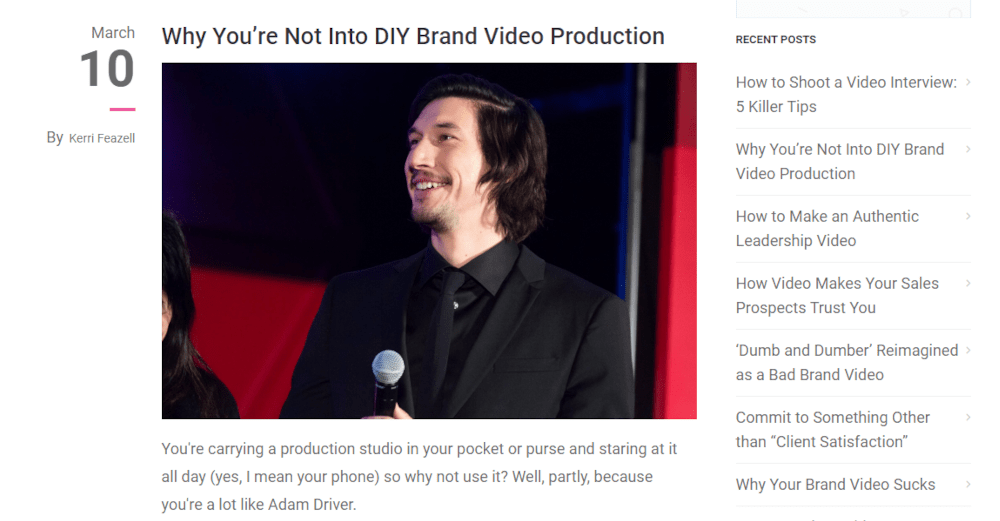
What books or training programs have you found useful on your journey to a successful business owner that others might find valuable too?
Oh wow, so many! In terms of aligning our philosophy for brand development and marketing, I love Simon Sinek’s Start with Why and Mark Schaefer’s Marketing Rebellion. For the business process, The E-Myth Revisted by Michael Gerber is essential.
Do you have any big mistakes you’ve made along the way that you’d be willing to share?
A lot. And I try to remember that big mistakes are blessings if we learn from them. The biggest mistake we made about our course was thinking for far too long that our information wasn’t valuable. It’s easy to think the things you have to share are “obvious”. That’s because they come naturally to you or you have been so immersed in them for so long. But that’s precisely why they are worth sharing!
It’s exciting to realize that the things you have been curious about and trained in can lead to a level of expertise worth sharing with others who haven’t learned them yet. -Kerri Feazell Click To TweetAnd to be a teacher, you really only have to know more about the subject than the person who you’re teaching.
We all have so much to learn from each other. It feels good to teach from my expertise so another professional can apply the principles to share their expertise and services with the world. If we can all do that, that is a beautiful world!
Please share some idea of revenue.
In our first month, we had one sale. The whole month. But that was enough to get us motivated and excited to keep going! We definitely need to invest in more marketing of our course to create the kind of sales we want so our numbers are still small. But we have enough to get us started and know there’s a market for what we’re offering. I’m OK with a slow build for a sustainable strategy with valuable content.
Please tell us a little about what the money you’ve earned from your course has done for you.
We’re not at a point yet where we’ve been able to do anything big with our course revenue. Right now, our aim is to position us as experts in the market to boost our full production services. And the possibility of monthly recurring revenue for a one-time investment of creating the course (and ongoing marketing efforts) is a great, achievable possibility.
What has creating your course done for you personally?
For me, the course lends huge credibility and confidence in our work. I recently sat on an online panel for members of the Beverly Hills Bar Association. My imposter panic thought was: “Wait, do I know what I’m talking about?!”
Having the course to point to in my mind, and remember the people who have purchased it and found it valuable, gave me a second thought to hang onto after that initial panic: “I got this.”
Do you have a story of a transformation from any of your clients?
I haven’t yet heard back from clients who have implemented the course.
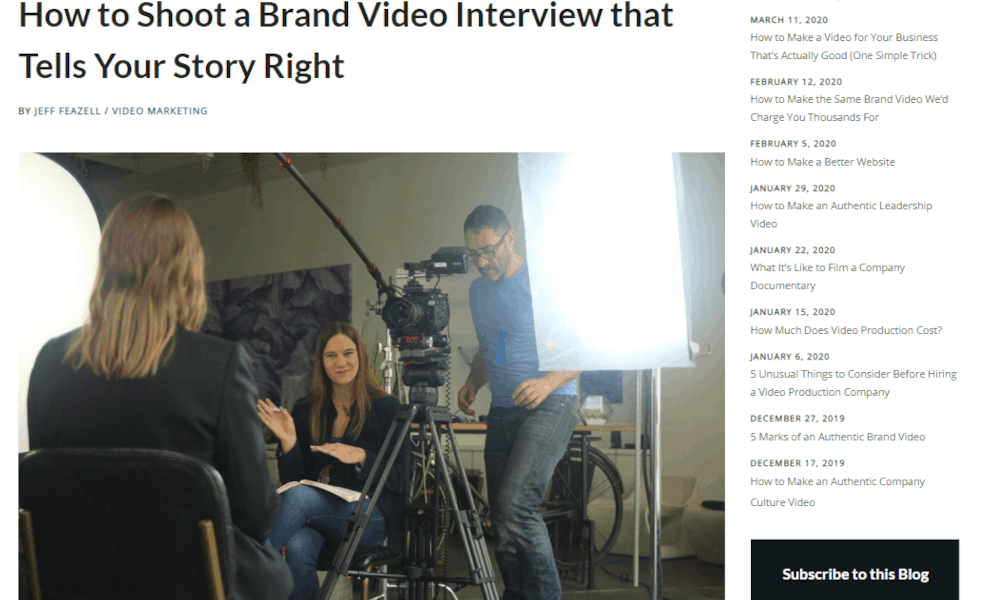
What advice do you have for people just starting out?
I think what we did well was test our market. First, we offered our in-person course for free or a nominal charge to a wide variety of audiences. And we always collected a feedback form. That helped us figure out what people actually wanted to know, which was sometimes surprising.
Before I started, I wish I had the course goal in mind from the beginning. Offering things for free is rewarding at a certain level. I didn’t actually realize how valuable the experience was until it came together in the online course. Looking back to see where it actually led feels good.